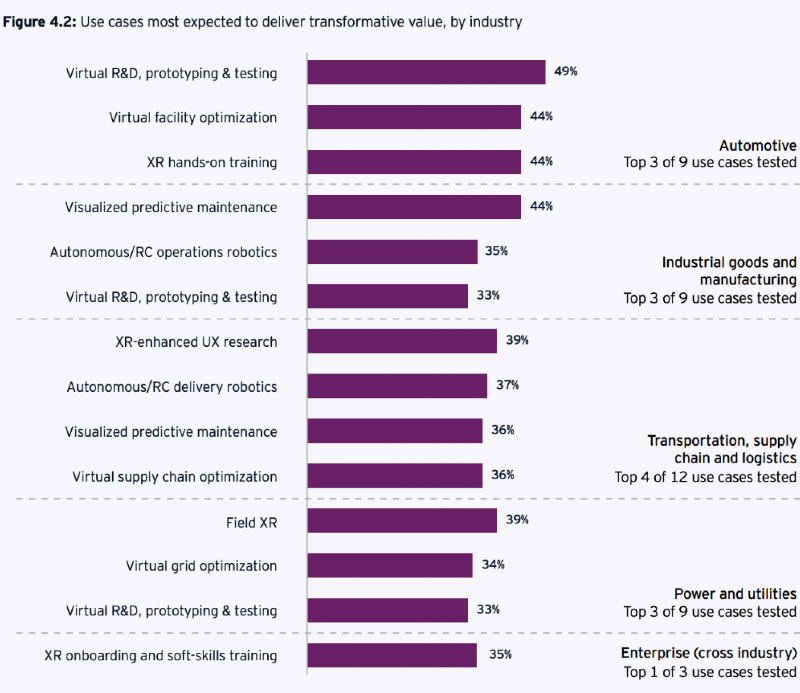
Introduction
Over the course of the last four decades, the world has seen an astonishing amount of change. Our world has become “smaller”, more interconnected, and travel and communication have never been easier.
This change has been driven primarily by the invention of the internet in 1989. Since its birth, the internet has rapidly taken over the world, and today it is an essential tool in both our professional and personal lives. We rely on it for most of our services – it is how we pay our bills, order our food and book our taxis.
It is no exaggeration to say that a lot of us spend a significant portion of our day online. In fact, research from October 2023 shows that the typical internet user spends almost 7 hours per day using the internet.
With a big chunk of our lives now spent online, it is naturally a place where brands want to promote themselves and engage with their audiences. Most of us are now quite used to being targeted by online advertising, and there is a plethora of information available online to guide our purchasing decisions, from product guides to user reviews to tutorials.
And the pace of technological change has not stopped. What many consider the next iteration of the internet is right around the corner: the metaverse.
What is the metaverse?
It is probably a word you have heard before, especially since Facebook heavily invested in the concept as the future of not only its business but also the internet itself, and even rebranded itself for an even closer association with it – but what is the metaverse exactly?
The metaverse is a constantly evolving concept that refers to a virtual space where individuals can interact with other users in real-time in a virtual shared space that merges the physical and digital worlds. It allows people to engage with one another, as well as virtual objects, as if they were in the real world, through technologies like virtual reality or augmented reality. In the metaverse, users can create avatars, explore virtual landscapes, participate in activities, communicate in a number of different ways and even conduct transactions. In short, it is a blending of our physical and digital worlds.
Combining these physical and digital elements offers more than our existing online platforms and social networks, as it allows users to immerse themselves in a richer and more interactive environment. The metaverse has great potential for transforming various aspects of society, including business, entertainment, education, and even everyday social interaction.
Many businesses, over the last three years, have invested and explored their opportunities in the metaverse. With a landscape changing rapidly and the emergence of new technologies and the advancement of generative AI, what the metaverse looks like and the opportunities it offers will change as well, and businesses must be available and willing to adapt so that they are well-positioned to grab them.

Why should B2B companies care about the metaverse?
Whilst use cases for the metaverse are still being uncovered as we go along, and even the metaverse itself has been seen as failing, the fact is that as an emerging technology there are opportunities to be uncovered. Identifying opportunities in the metaverse is crucial for B2B companies for a number of reasons.
Firstly, the metaverse as a concept represents a big change in how people connect, communicate, and ultimately (will) conduct business. By establishing a presence in the metaverse, B2B companies can tap into a vast and evolving digital landscape where their target audience increasingly spends their time. Ignoring this emerging area of our digital landscape could result in missed opportunities to engage with customers, partners and stakeholders in new and innovative ways.
The metaverse also offers a unique environment for B2B companies to differentiate themselves and create immersive experiences that improve brand awareness and customer engagement. It provides companies with a platform that helps them showcase products, services and solutions in new ways, with a reach that goes beyond traditional marketing or sales activities.
Additionally, and perhaps more importantly for B2B companies, the metaverse offers the potential for cost savings and improvements in efficiency, such as virtual meetings, training and collaborative workspaces.
Companies that identify and leverage these opportunities early on may gain a competitive advantage and adapt more effectively to the changing digital landscape.
In summary, embracing the metaverse is not just about following new technology trends, but also about positioning your company for growth in an increasingly digital environment.
Understanding the metaverse
Now that you have a better idea of what the metaverse is and why it may be of interest to your company, let’s look into who is investing in becoming major players in this space.
Unsurprisingly, pretty much all the major technology companies are amongst the largest investors in the metaverse.
Meta has invested heavily in the acquisition and development of hardware and software to expand on its position in this market and has even tied its own brand to the concept.
Google and Microsoft are also investing, as they see the potential and the long-term trajectory of online user behaviours and preferences, as well as the different applications the technology could have.
Perhaps also unsurprising is the fact that we have several companies tied to the gaming industry investing in developing new user experiences through the metaverse, in an effort to capture new audiences and keep existing ones continuously engaged with their content. This is where Epic Games, Roblox and Nvidia come in.
There is one other company that is also worth mentioning, and that is Shopify. Online shopping is an area that can truly be revolutionised by the metaverse. Through the use of virtual reality and augmented reality, users could explore shops virtually, interact with products in three dimensions and even try them on virtually. You might have already come across some of these augmented reality experiences, for example when virtually trying on different glasses when shopping online.
But the options might not stop there as shoppers might even be able to socialise with friends or virtual sales assistants whilst shopping online. This will offer businesses the opportunity to offer more personalised, engaging and social shopping experiences even in an online environment.
As artificial intelligence advancements provide businesses with more opportunities for personalised services and experiences, businesses that invest in the metaverse and focus on increasing the experience for their users will reap the rewards.
We should also expect further integration of the physical and digital worlds and almost a blending of both. Whilst it may sound to some like a dystopian future out of Black Mirror, this is merely an expansion and a more immersive version of what we have today.
The more integrated the metaverse becomes in our daily life, the more the ways we interact with the things around us will change. The way we communicate, work, receive an education and have fun will evolve.
One of these days, if you work remotely, you may find yourself in a virtual meeting room or even at a virtual event. In fact, if you have ever attended any of the online versions of Webcertain’s International Search Summit, you have already experienced a virtual event, where you could move around the floor and network in a virtual setting, attend talks and take part in round-tables.
These experiences will continue to be a more present part of our lives and become increasingly more immersive.
It is fair to say that we are not yet in a phase where using the metaverse is a mainstream experience, but the expectation is that the numbers will grow rapidly as the technology develops and becomes more accessible. This, in turn, will give rise to “metaverse-first businesses”, who will choose to focus on operating primarily in the metaverse.
If you are from the B2B sector, you might look at a few of these examples and believe they do not apply to you. But there are just as many opportunities waiting for B2B businesses and industries, and plenty of use cases for how it can transform your business, how you interact with clients and prospects, and even how you deliver services.
One such example has already been given above: events. Hosting or attending trade shows can be a costly and time-consuming activity. The ability to host or participate in virtual conferences or industry events will allow B2B businesses and sales teams the ability to connect with clients and partners in a much more cost-effective and immersive way.
Training is also an area that can benefit from the metaverse, with B2B businesses being able to conduct employee training and onboarding in a virtual environment, thereby creating a more engaging and interactive learning experience.
There are also potential applications in product demonstrations in an immersive 3D space, virtual prototyping and design, virtual supply chain management, market research, marketing and advertising.
Many of these things have already been adopted by businesses through the digital transition society has been experiencing over the last 20 years or so. Again, what the metaverse will bring is an ability to deliver these in a richer and more immersive way.

How to identify metaverse opportunities for your B2B company
Now that we have touched upon some of the different uses the metaverse can have for B2B companies, let’s look at how to go about identifying what opportunities are there, and which make sense for your business.
As I have already described, there are several different areas and applications where the metaverse can provide opportunities for your brand. IBM identifies five key areas of opportunity:
- New product development
- Manufacturing and supply chain operations
- Store and space design
- Training, service and support
- Enhanced customer experiences
The journey to understanding whether there are opportunities for your business in the metaverse should start with an assessment of your strengths and weaknesses, as well as potential areas for growth, through a SWOT analysis.
This would involve examining your core competencies, resources and competitive advantages. For example, looking at historical performance in areas your company has done well in and evaluating whether there are new avenues to explore there that could maintain or even grow your competitive edge over your competitors. The same evaluation can also be conducted to assess weaknesses and consider how those gaps may be closed.
Likewise, you can look at current market conditions, analyse your competitors’ activities and look at where threats and opportunities might be coming from. Conducting this analysis will guide your strategic decisions and align them with the overall goals of your company.
There might also be opportunities in the metaverse for your company in collaboration with other players in the metaverse. In fact, identifying potential partnerships or collaborations in the metaverse may lead to the right opportunities. Collaborating and partnering with other companies can be a great strategic move for B2B companies seeking to stay ahead in a rapidly evolving digital landscape.
Partnering with other companies allows you to leverage the strengths and expertise of others, whether it is in specific product or service areas that your company does not specialise in or just the metaverse itself. This can, in turn, foster synergies in product and service development or increased market access.
There are different ways you can look for the right partners for your metaverse strategy, with the most obvious places being metaverse events or communities. A lot of use cases, new ideas and discussions take place in these places, and they will allow you to network, discover and learn from potential partners.
Also, within the metaverse itself you can explore collaborative platforms and marketplaces that exist to facilitate partnerships, and they can help connect companies that are looking for synergies in various industries.
These collaborations, as well as the features the metaverse allows, may eventually uncover opportunities for exploring new potential business models where you can deliver integrated solutions or shared experiences.
In a continuously evolving landscape, it is at least worth keeping an eye out for new use cases and opportunities. It will be the companies exploring new and adaptive business models that will be perfectly poised to benefit from the transformative potential of a new digital landscape.
Metaverse success stories and use cases
You might recall that there was a time, not so long ago, when the metaverse was the “next big thing” in the digital transformation of our world. Then, we had generative AI introducing itself to the masses, and the metaverse disappeared from the headlines. So much so, that some decided to write its obituary.
But is that the truth? In short, no. Whilst it is true that we are not all living our lives as little avatars in an infinite world of endless possibilities like Mark Zuckerberg once tried to show us (see image below), companies are nevertheless continuing to explore the potential and possibilities of the metaverse. And many are finding benefits.

Nokia conducted a large study that included 860 companies from the US, the UK, Brazil, Germany, Japan and South Korea, focusing on four key industries:
- Automotive
- Industrial goods and manufacturing
- Transportation, supply chains and logistics
- Power and utilities
The study included in-depth interviews with topic area and industry experts and leaders across all industries. The study found that the metaverse is not just hype – in fact, 80% of experienced respondents (companies with at least one use case deployed) believe it will have a significant or transformative impact on their business.
The main use cases covered all areas of the value chain and included customer-facing and non-customer-facing examples. This proves that there is potential in the metaverse for improved processes and services across all areas of business, and different companies can find what is right for them. Some companies have already found applications and success, developing new products and experiences for their customers.
One such company is Boggy Creek Airboat Adventures, a nature park in Florida that relies mostly on visits from foreign tourists on family trips. Naturally, this was the type of business that was very much affected by COVID-19. Travel planners are key to its operation, as they help families plan their holidays and activities and make recommendations on where to go. With in-person visits not possible and Zoom demonstrations not enough to capture the richness of what the park has to offer, it turned to a more immersive solution: virtual reality visits.
This practical use case could provide learnings for a number of different industries, where virtual reality can be leveraged to provide a more immersive experience of a company’s products – as well as other applications, such as training global staff.
But what about B2B use cases? In the study from Nokia, you can see that each B2B industry analysed had its own opinions of the most transformative use cases, based on their own particular needs.

You can see there are some commonalities between them. The majority see virtual research and development, prototyping and testing as having a very high potential to deliver transformative value to their businesses.
Extended reality (XR) is also one of the most cited use cases – this term is a catch-all that covers augmented reality, virtual reality and mixed reality. But what is truly interesting is how broad its applications can be, ranging from field XR and XR-enhanced UX research, to XR onboarding and soft-skills training.
This really is the clearest demonstration of the extensive possibilities the metaverse can provide to any company, including B2B companies.
Conclusion
The metaverse is a fast-evolving area of digital transformation, and practical use cases for it continue to build. It may have received fewer headlines in the last year, but to paraphrase Mark Twain, rumours of its death have been greatly exaggerated.
In fact, all of the companies that dominate the technology landscape continue to compete amongst themselves to claim their corner of the metaverse market. Over the coming years, the possibilities that the metaverse will open will become part of our everyday lives, particularly at work.
But there is no need to wait for tomorrow, as there are already plenty of potential applications available today that can transform your company, particularly B2B companies. All you need to do is research the market, analyse where your needs are and see what potential opportunities are available in the metaverse to help address them.
By harnessing the power of the metaverse, you can expand the reach of your company’s activities without the need for a large physical presence – which is particularly useful from an international perspective. With the metaverse, you can attend or host international events without the hassle of travel, you can train teams at a global scale, and you can do product demonstrations for clients worldwide without them having to visit you at a trade show or your factory.
Just remember, the metaverse is and will be itself a very collaborative medium. No company will be able to do everything by itself, so once you have identified the opportunities, look for partners that can help you deliver them.
And finally, do not be afraid of risk! As with all new technologies, a lot of things are new and unknown. But if you do your research, are confident of the potential benefits, and have the right tools and partners to implement your vision and strategy, then you will not be risking so much as investing.






